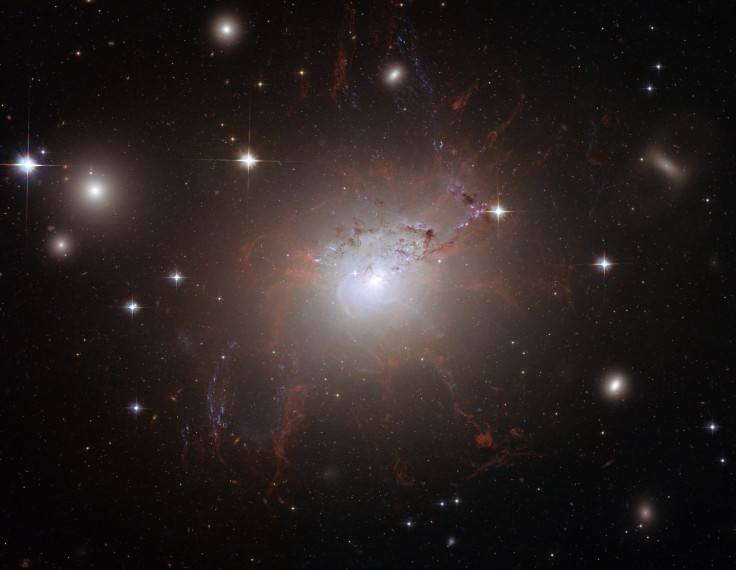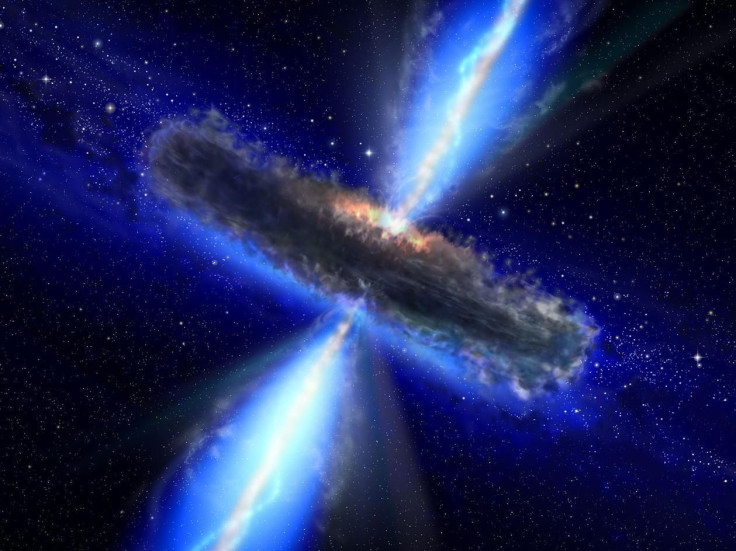Stephen Hawking And 32 Others Pen Furious Letter About Origins Of The Universe

Stephen Hawking and dozens of other leading scientists in the field of cosmology — four of whom were recipients of the Nobel Prize in Physics — penned a heated joint letter in response to a paper calling into question the origins of the universe. The letter comes in response to a February joint article by three scientists titled “Pop Goes the Universe.”
Earlier this year, Anna Ijjas, Paul J. Steinhardt and Abraham Loeb published an article in Scientific American that challenged the widely accepted theory that the universe is ever-expanding. They argued that the most recent measurements of the cosmic microwave background (CMB), light emitted after the Big Bang some 13.7 billion years ago, create concerns about “the inflationary theory of the cosmos—the idea that space expanded exponentially in the first moments of time.”
“Inflation typically produces a different pattern of temperature variation in the CMB (although it can be made to predict almost any outcome). It would also generate primordial gravitational waves, which have not been found,” they wrote. “The data suggest cosmologists should reassess this favored paradigm and consider new ideas about how the universe began.”
Read: 10 Stunning Images Of NASA Concept Art That Imagine Our Universe
The CMB data in question were mapped by a satellite called Planck and announced at a 2013 European Space Agency press conference. Planck had mapped the most detailed readings to date and seemed to confirm the inflationary theory about the universe — that the universe expanded extremely fast immediately following the Big Big before eventually slowing — which had been widely accepted by cosmologists for more than three decades.

However, upon learning of the new data, Ijjas, Steinhardt and Loeb were immediately skeptical. Steinhardt had even been one of the original “architects” of inflationary theory, said the paper, but his later work “pointed out serious problems with its theoretical foundations.” They said that more recent and precise data challenges the theory.
“If anything, the Planck data disfavored the simplest inflation models and exacerbated long-standing foundational problems with the theory, providing new reasons to consider competing ideas about the origin and evolution of the universe.”
The “competing idea” to the inflationary theory posited by the three scientists is a “big bounce,” which describes the bounce back from a previously collapsing universe. They claimed we are currently experiencing the expanding phase before the universe will again contract, at which time it will become so tiny that it will begin to inflate again. They wrote there’s “zero” evidence to say for certain whether what happened 13 billion years ago was a bang or bounce, and claim proponents of inflation theory are “promoting the idea of some kind of nonempirical science.”
“[E]ven now the cosmology community has not taken a cold, honest look at the big bang inflationary theory or paid significant attention to critics who question whether inflation happened,” they said.
The paper didn’t go over well with 33 leading scientists in the field, including Stephen Hawking, who jointly signed a response penned by Alan Guth (MIT) — the pioneer of inflation theory — David Kaiser (MIT), Andrei Linde (Stanford) and Yasunori Nomura (UC Berkeley). It was then passed around and signed by other scientists in the field, according to Gizmodo.
Read: Planck Telescope Observations Suggest Universe Was Dark For 560 Million Years After Big Bang
“We disagree with a number of statements in their article, but in this letter, we will focus on our categorical disagreement with these statements about the testability of inflation,” wrote the scientists in their rebuttal, which was also published in Scientific American.
“There is no disputing the fact that inflation has become the dominant paradigm in cosmology,” they continued. “By claiming that inflationary cosmology lies outside the scientific method, IS&L are dismissing the research of not only all the authors of this letter but also that of a substantial contingent of the scientific community. Moreover, as the work of several major, international collaborations has made clear, inflation is not only testable, but it has been subjected to a significant number of tests and so far has passed every one.”
The letter goes on to address numerous tests and data to support inflation theory in more than 35 years of its existence. The theory is a work in progress, they argued, but provide a number of examples of why it is at present the most probable. Then they dropped this bombshell:
“While the successes of inflationary models are unmistakable, IS&L nonetheless make the claim that inflation is untestable. (We are bewildered by IS&L’s assertion that the dramatic observational successes of inflation should be discounted while they accuse the advocates of inflation of abandoning empirical science!)”
As if all the scientific drama among some the world’s leading cosmological minds weren’t enough, Ijjas, Steinhardt and Loeb hit back with yet another joint response.
“We have great respect for the scientists who signed the rebuttal to our article, but we are disappointed by their response, which misses our key point: the differences between the inflationary theory once thought to be possible and the theory as understood today. ... We firmly believe that in a healthy scientific community, respectful disagreement is possible and hence reject the suggestion that by pointing out problems, we are discarding the work of all of those who developed the theory of inflation and enabled precise measurements of the universe.”
They went on to argue that “thinking about inflation was based on a series of misunderstandings,” adding that at the time inflation theory was introduced, it was not understood that inflation leads to “leads to eternal inflation and, consequently, a multiverse—an infinite diversity of outcomes.”
“Our point is that we should be talking about the contemporary version of inflation, warts and all, not some defunct relic,” wrote Ijjas, Steinhardt and Loeb. “Logically, if the outcome of inflation is highly sensitive to initial conditions that are not yet understood, as the respondents concede, the outcome cannot be determined.”
© Copyright IBTimes 2024. All rights reserved.




















